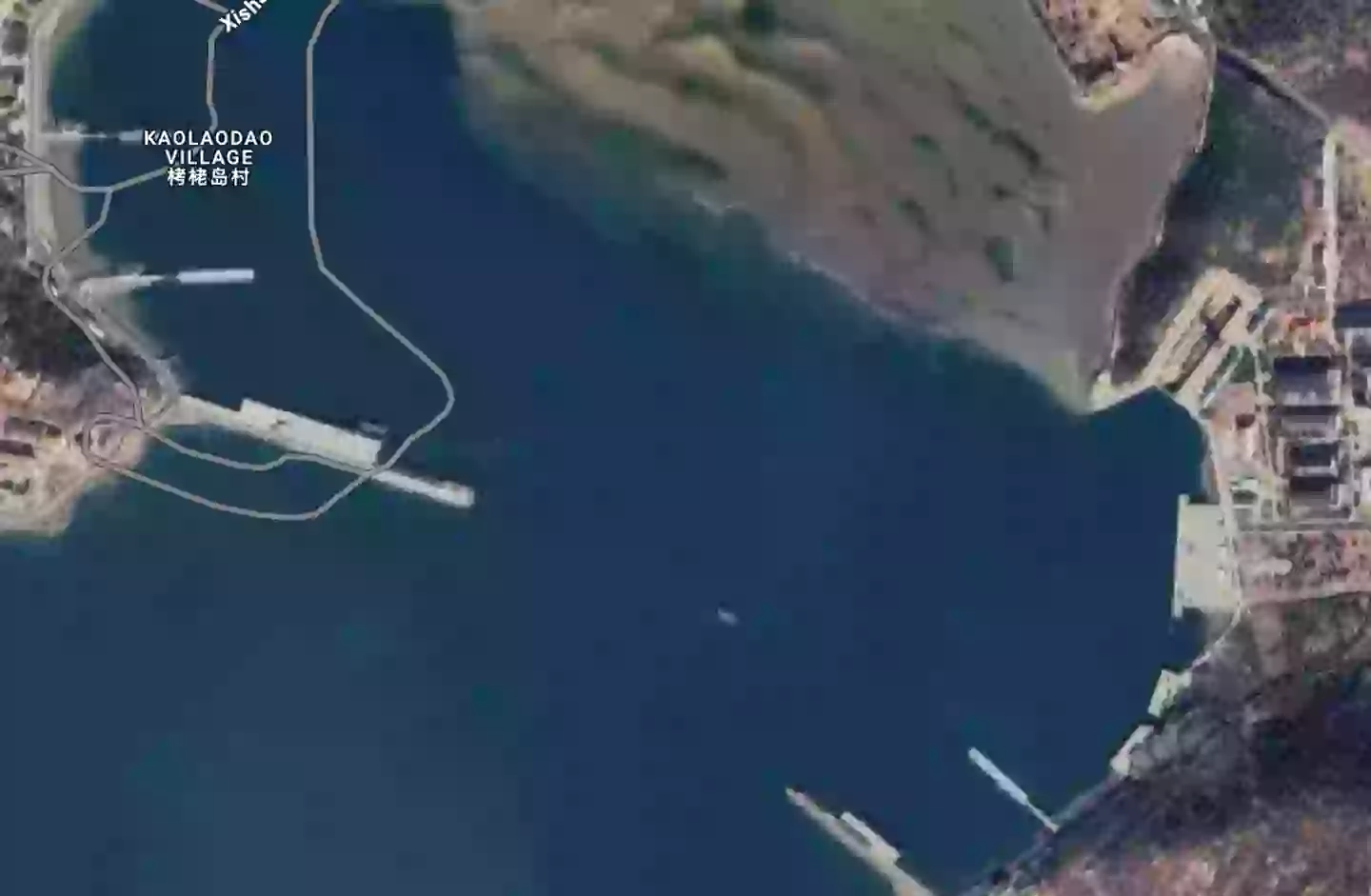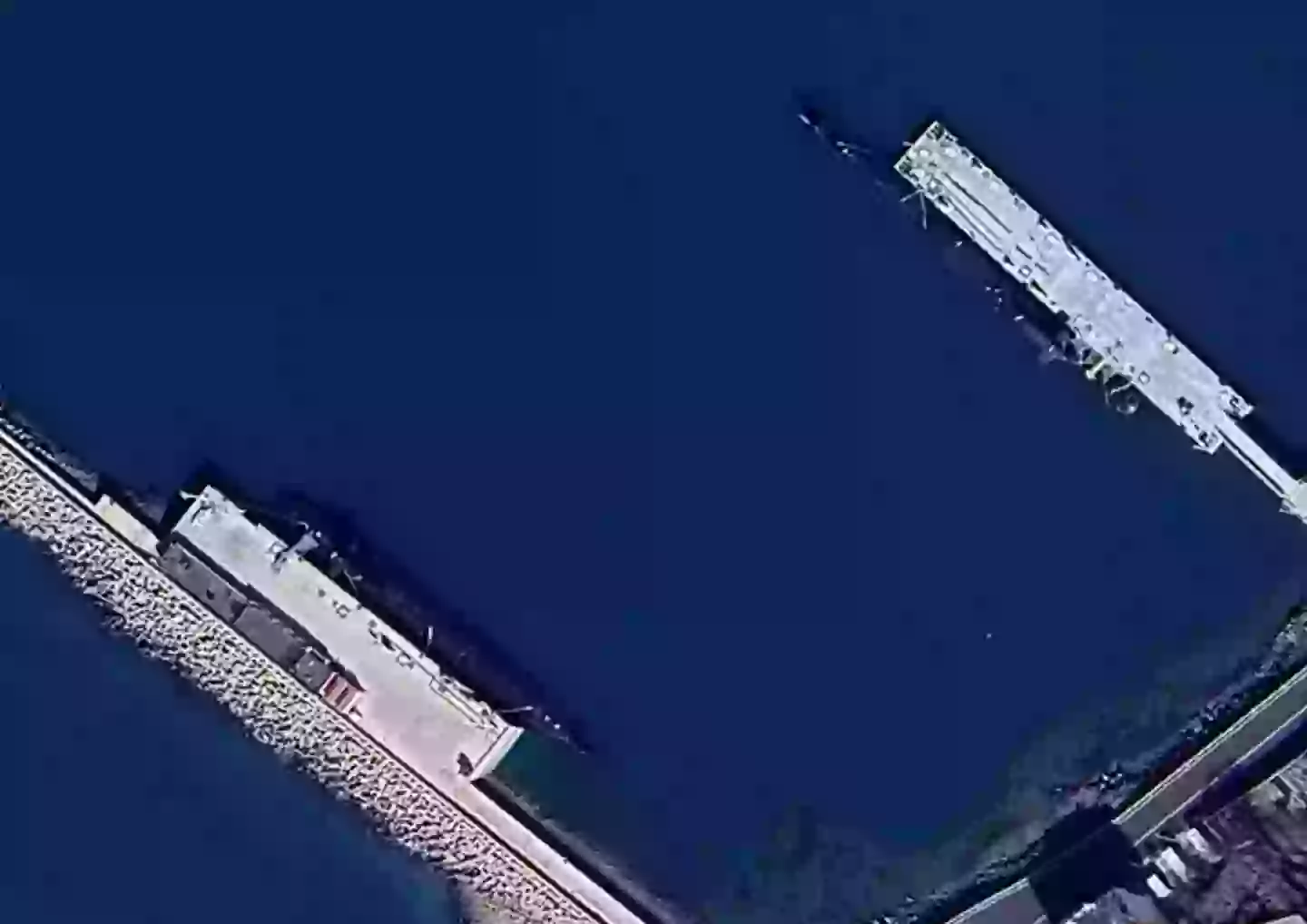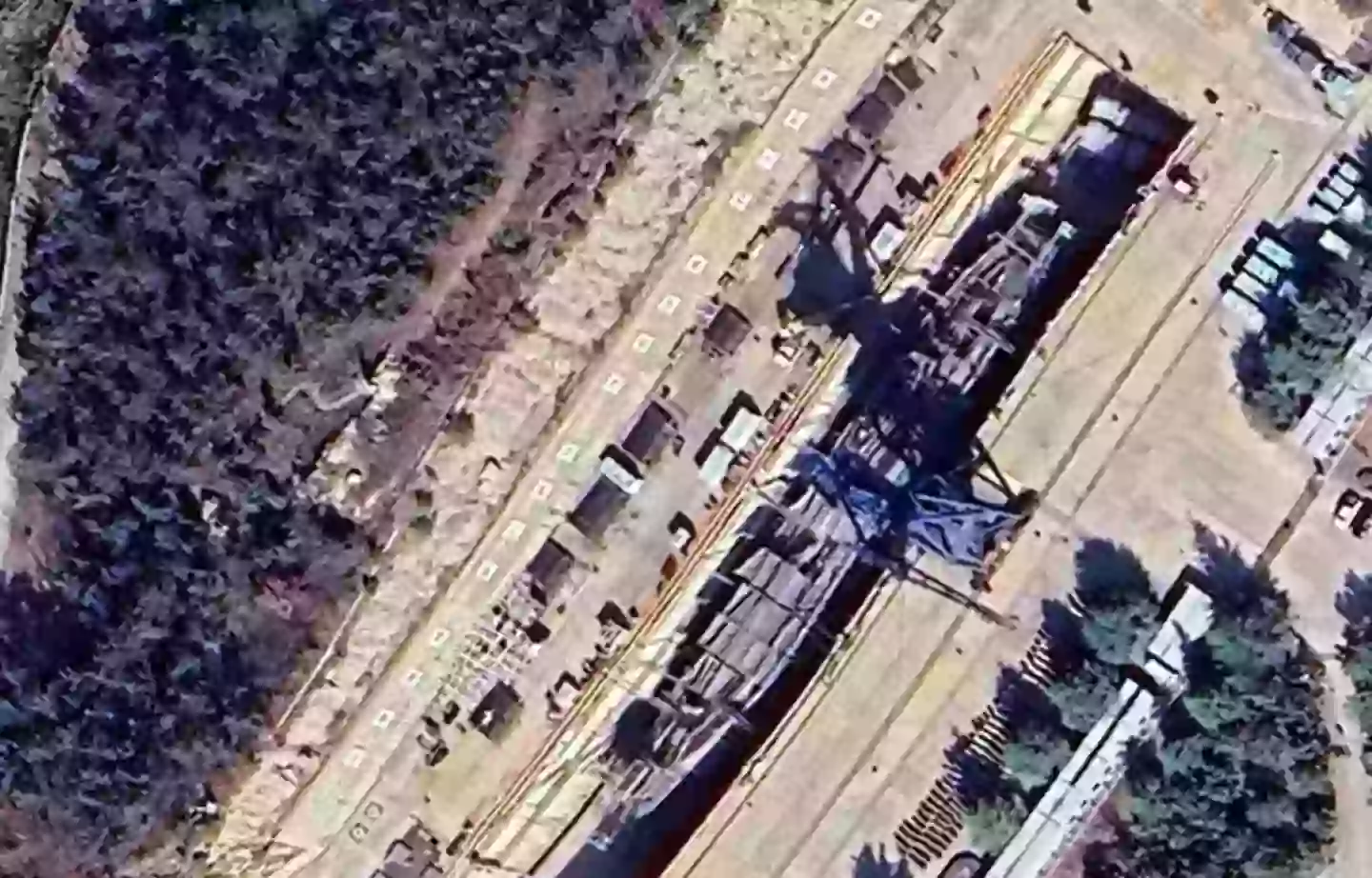
New satellite images have revealed a number of nuclear submarines at a Chinese military base that was previously hidden.
The amount of information that technology helps us obtain in the 21st century is jaw-dropping at times, but when it comes to military intel, you'd think it would be kept more under wraps.
However, the latest satellite imagery over East China has revealed that at least six active submarines are located at the First Submarine Base in Qingdao.
Advert
This location gives the underwater naval vessels direct access to the Yellow Sea, East China Sea, and the Sea of Japan.
Five of the six nuclear-powered submarines found at the base were armed, and included two Type 091 submarines, two Type 093A submarines, and one that was unidentified.

The man responsible for spotting the images is Alex Luck, an Australian naval analyst who identified the subs.
Among the six, there is just one Chinese Type 092 nuclear-powered ballistic missile submarine, which was replaced by the Type 094, was also seen in the image.
Advert
It is believed that the Qingdao base could be a huge part of the nation's maritime strategy, which is continuing to grow.
Campaigners have recently raised concerns over China's military buildup, with Robert Clark, the head of UK Public Affairs and Advocacy at the Committee for Freedom in Hong Kong Foundation voicing his worries to MailOnline.
"This alarming development confirms two important facets of Chinese military strategy - the first is their intent to continually defy international law by increasing their rate of nuclear proliferation," he explained.

Clark added: "The second is their desire to not only break through as a truly 'blue water' navy, but to actively dominate the strategically important sea lines of communication all the way out to the third island chain, and as far as Australia and in the Indian Ocean."
Advert
He explained that the nation's base at Qingdao and the nuclear submarines stationed there will give Beijing a 'strategic edge.'
The Brit said that it's important to 'send a clear signal to China' with the UK's deployment of the Royal Navy Carrier Strike Group in the area, as they must be aware they do 'not control these waters and islands which it has no legitimate basis.'
At the moment, China has about 600 nuclear warheads in its arsenal, though it holds a 'no-first-use' nuclear weapons policy.

It has built 12 nuclear-powered submarines in just 15 years, with six of these people Jin-class models.
Advert
They were displayed to the public as part of a parade to celebrate the formation of the People's Republic's 70th anniversary back in 2019.
The Jin-class models can carry up to 12 missiles, while experts believe a new incoming model, the 096, will be operational in the next decade or so.
They are believed to have a ballistic missile with a 'longer range.'
It is estimated by the US that the People's Liberation Army Navy (PLAN) of China plans to grow its current fleet of 60 to 65 by the close of 2025, and 80 by 2035.
Topics: China, Technology, World News